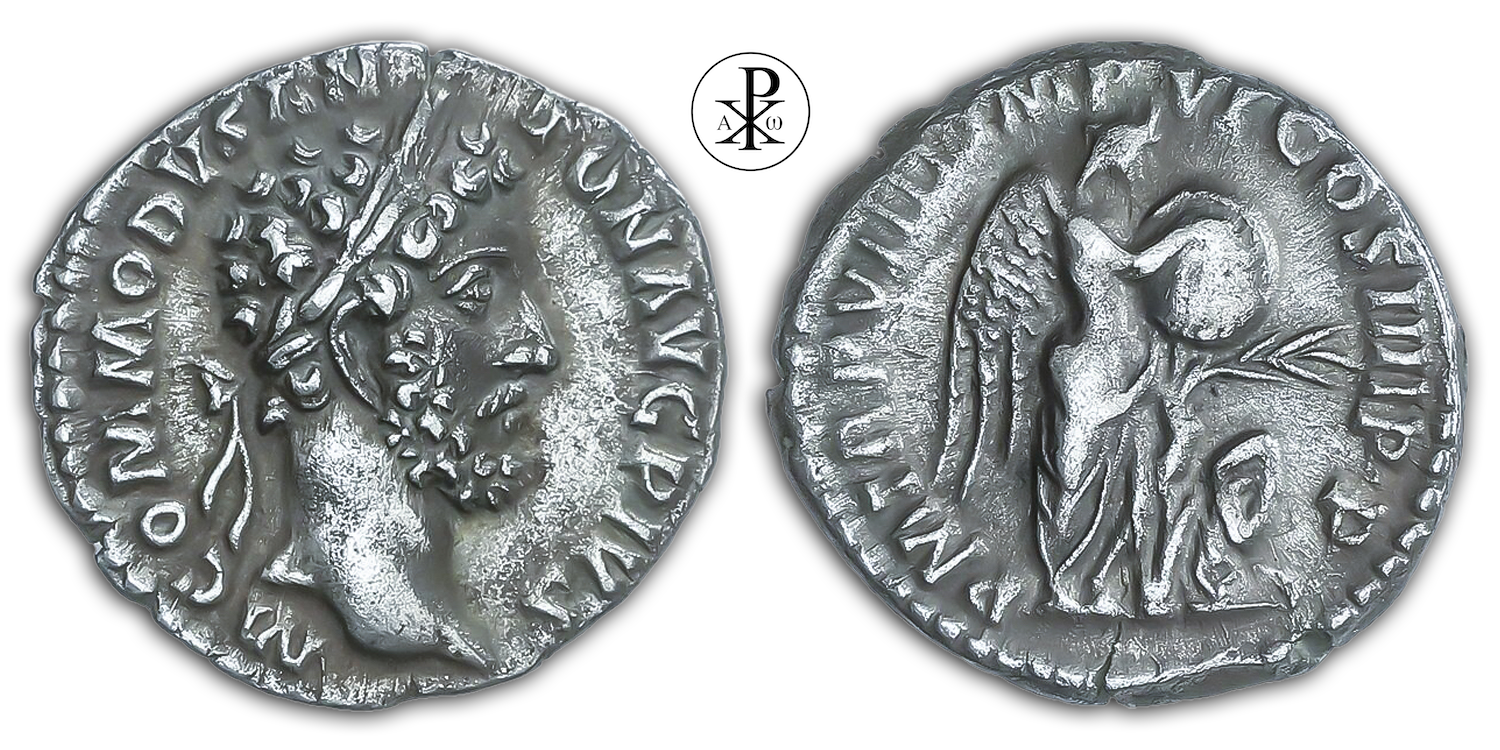Imperator Caesar Marcus Aurelius Commodus Antoninus Augustus
Reign: Commodus
Mint: Rome
Date: 183/184 AD
Nominal: Denarius
Material: Silver
Diameter: 18mm
Weight: 2.71g
Reference: RIC III Commodus 79
OCRE Online: http://numismatics.org/ocre/id/ric.3.com.79
Rare: R1
Provenance: Casa de Subastas Numismatica Madrid, Spain (Auction 636, Lot 155)
Pedigree: –
Obverse: Head of Commodus, laureate, right
Inscription: M COMMODVS ANTON AVG PIVS
Translation: Marcus Commodus Antoninus Augustus Pius
Reverse: Victory, winged, draped, standing right, inscribing shield set on palm at base of which, seated captive
Inscription: P M TR P VIIII IMP VI COS IIII P P
Translation: Pontifex Maximus, Tribunicia Potestate Nona, Imperator Sextum, Consul Quartum, Pater Patriae
Translation: High priest, holder of tribunician power for the ninth time, Imperator for the sixth time, consul for the fourth time, father of the nation
Comment: In 183 AD Commodus took the epithet Pius after he had, as the senate mocked, designated a paramour of his mother as consul (Comm. 8, 1). In the Arvalactae he already bears this name on 7 January 183 AD. Apparently at the same time as the adoption of the name Pius, the renewal of the title Imperator took place (IMP VI). The reason for the adoption of both titles is not historically certain. The background of the Victory denarius type presented here is probably the Britannic War that began in 184 AD. Little is known about the revolt itself. Cassius Dio reports that tribes from the north had broken through the border wall separating them from the Empire and killed a general (possibly Caerellius Priscus) with all his guards – presumably during an inspection of Hadrian’s Wall. Furthermore, he named the war as the most severe in Commodus’ reign and reported that it could only be put down at the end of 184 AD. Commodus sent against them Ulpius Marcellus, who had already administered Britain in the time of the Emperor Marcus. Marcellus undertook punitive raids north of the border and may have attempted to reoccupy the Antonine Wall. However, he eventually retreated to Hadrian’s Wall and probably concluded treaties with the tribes in charge. The forts north of the Wall, such as Newstead, were abandoned. Two inscriptions on the fortress at Cilurnum mention him in connection with Ala II Asturum. Due to the victory over the Caledonians, Commodus later took the name Britannicus and his seventh imperial title.
